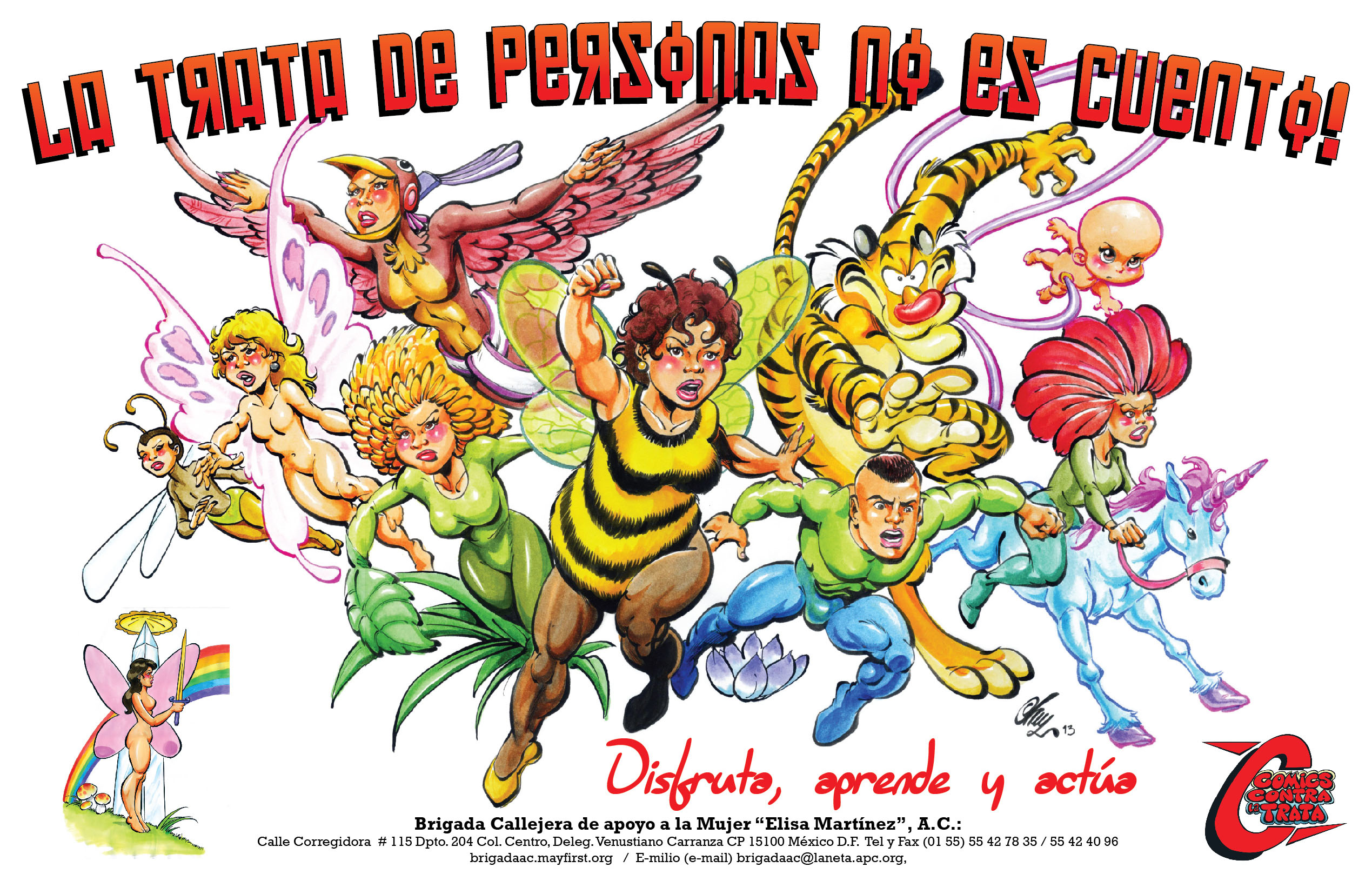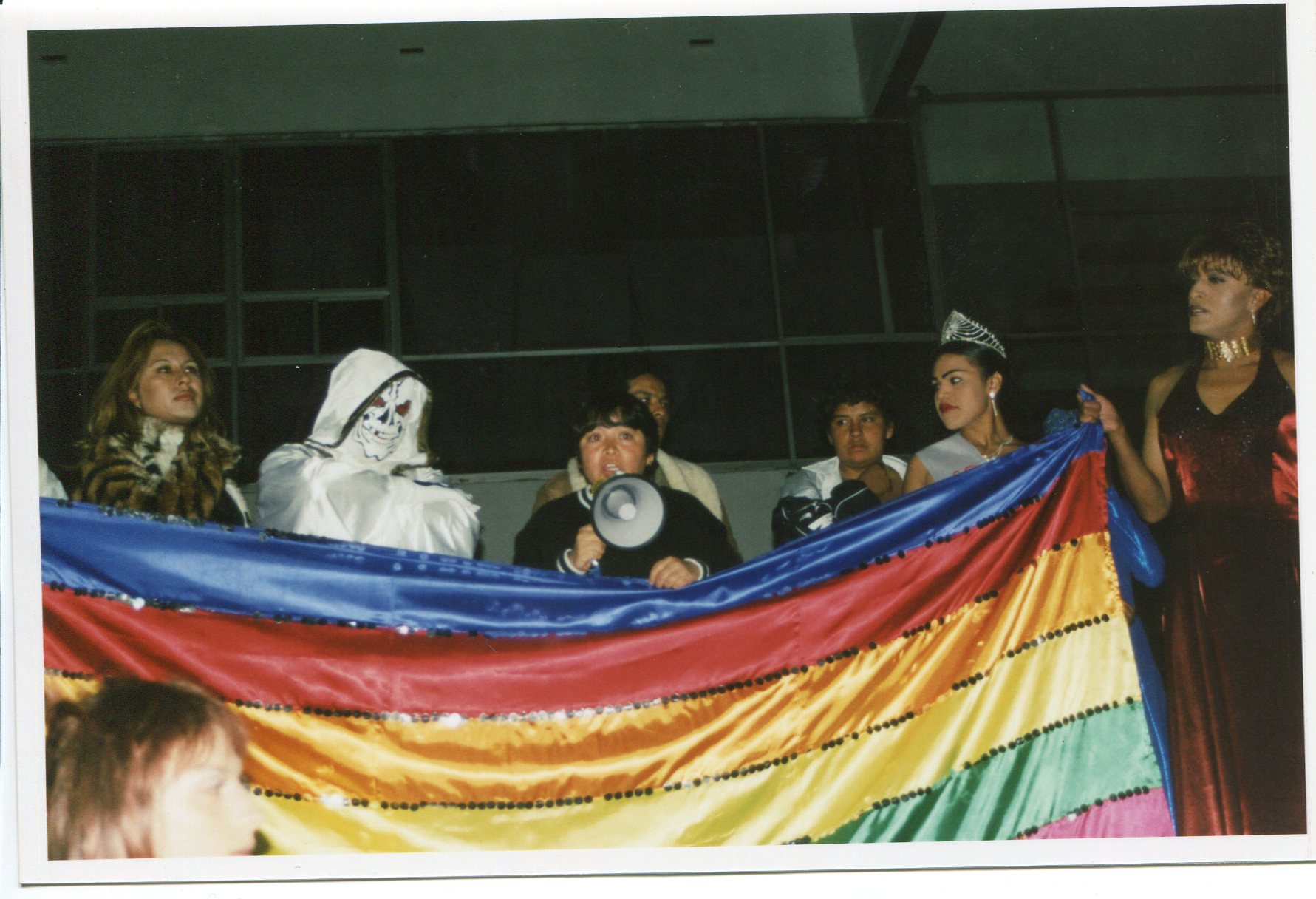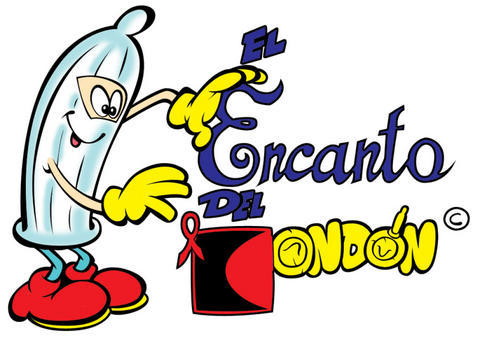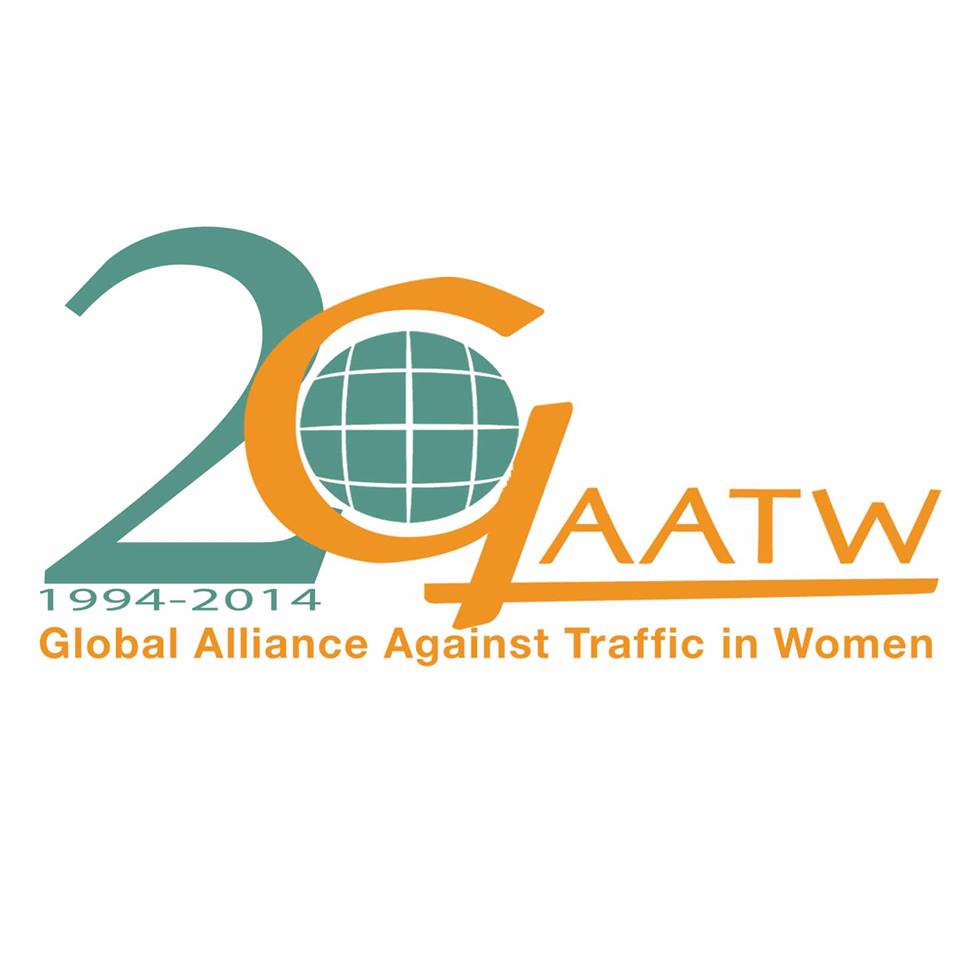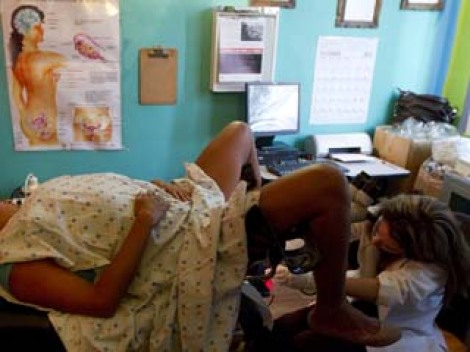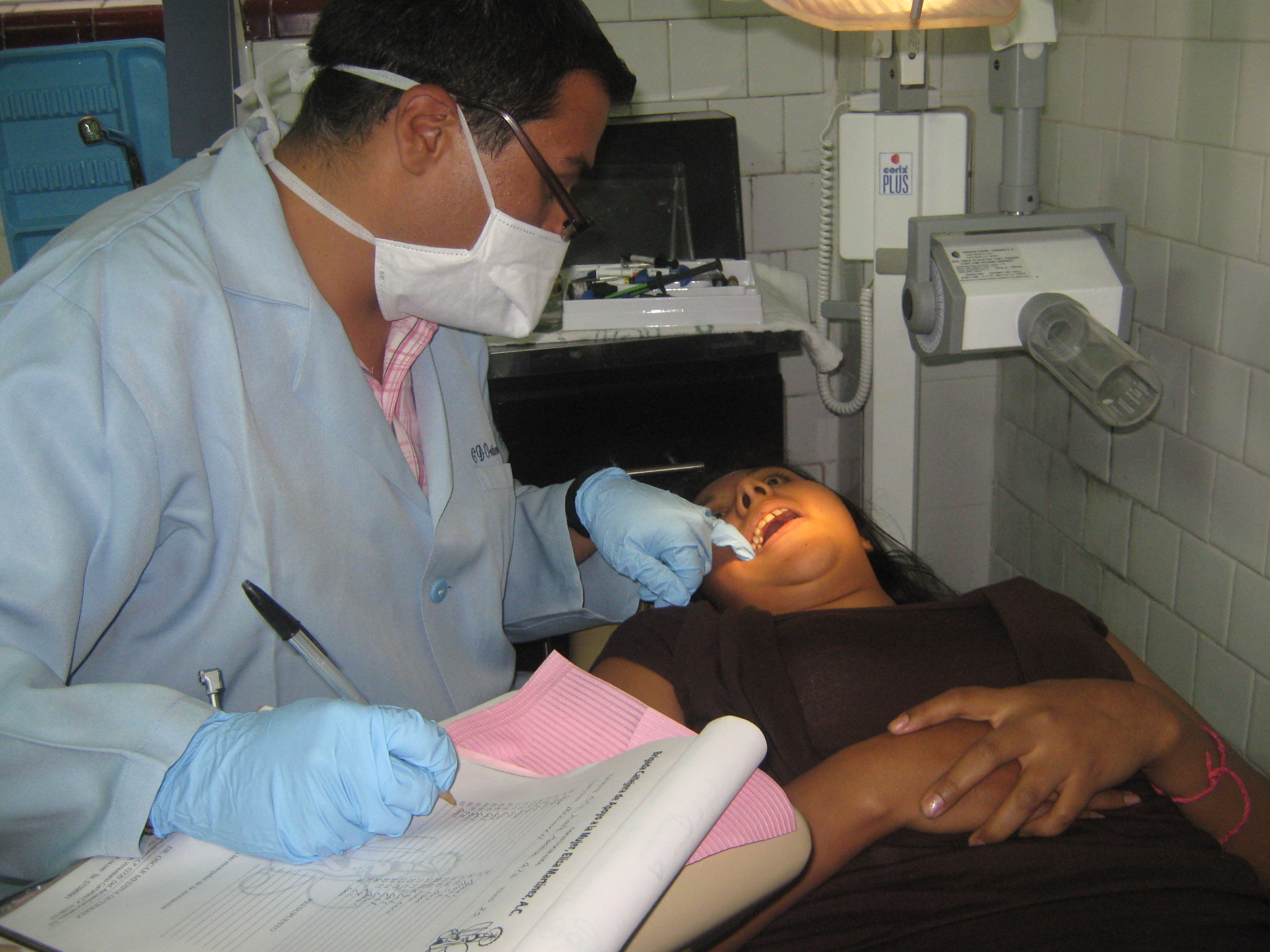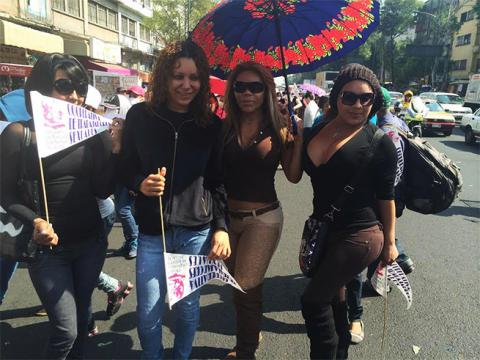
CASE: “Incitement to Hatred Towards Sex Workers during Felipe Calderon’s 2007-2012 Presidential Term”, presented by Brigada Callejera de Apoyo a la Mujer “Elisa Martínez”, A.C. and la Red Mexicana de Trabajo Sexual at the Pre-Trial on Gender Violence and Femicide of the Mexican Chapter of the Permanent Peoples’ Tribunal (TPP).
Those of us present here today, accredited as self-employed sex workers by the Secretariat of Work and Employment Promotion (STyPE) of the Mexico City Government (GDF) as mandated by the Mexican Federal Judiciary (PJF) in the 212/2013 court ruling, make the following ACCUSATION of our own free will and decision against the MEXICAN STATE: that the systematic violence against women and trans sex workers is a collateral effect of the national legislation against human trafficking. This is due to the fact that this set of laws criminalizes and promotes hate and femicide against this sector of workers. Amongst other things, this legislation criminalizes the use of condoms in areas where the authorities assume that sex work exists. An example of this hate is shown in the six femicides of sex workers who were human rights activists of the Red Mexicana de Trabajo Sexual and the eight femicides of migrant women who lost their lives in the Zona Galáctica in Tuxtla Gutierrez, Chiapas in a police operative against human trafficking.
Federal, state and municipal authorities participated in the operative to rescue victims of said crime.
WE RECOGNIZE that the current calculated number of sex workers is around 800,000 throughout the country. This is caused by a lack of opportunities and represents the failure of the Mexican State as a whole to attend to diverse fundamental rights, such as quality education, labor rights, dignified housing rights, the right to nutrition, to employment options other than sex work, and to health care – especially in regards to sexual and reproductive health. These basic rights are denied to those who need them and who resort to this kind of work. WE DENOUNCE the Mexican State’s role as a panderer that uses it’s macroeconomic policies to generate a work force to be induced into sex work and that facilitates the conditions for all types of exploitation of sex workers in which underage youth are the object of the child sexual exploitation industry that contributes 2% of the gross domestic product.
OUR MAIN DEMAND is that the Mexican State implement the recommendations made by The Office of the United Nations High Commissioner for Human Rights in Mexico. These were proposed in 2003 as part of the “Diagnosis on the Situation of Human Rights in Mexico” that referred to the recognition of labor rights and employer obligations to workers in the areas of domestic service, self-employed maquila work, and sex work. This would bring certainty and legal safety to sex work, reduce the unstable employment opportunities that now exist, and oblige the Mexican State to guarantee a minimum level of respect for the human rights of those of us who make a living from sex work, including our right to make our own decision as to whether we leave that line of work or not. OUR SECOND DEMAND WHICH IS NO LESS IMPORTANT than our main demand, is that the Mexican State ratify the dispositions contained in the Court Ruling on the 212/2013 Case for Amparo (tr. note: a legal proceeding that is unique to Mexico that would be similar to the protection of constitutional rights) that was emitted by the Mexican Federal Judiciary in which the Mexico City Government is obliged to recognize sex workers as self-employed workers with the same rights and obligations as the rest of the members of the Mexican working class.
THE PERMANENT PEOPLES’ TRIBUNAL (Mexican Chapter), should not situate the demands of sex workers within the terms of an ideological argument between those who do or do not recognize the class aspects of our sector. These demands should instead be analyzed in terms of human, economic and social rights that have been violated by the State because to propose that a ruling be made on a basis of shared opinions from apparently pluralistic poinst of view, but then allow for the use of abolitionist terms when talking about “the violations of human rights within the context of prostitution”, excludes said plurality, and the demands of social entities whose struggle has made it possible for their labor rights to be recognized by the Mexican Federal Judiciary, are thus marginalized.
Link to the high comissioner’s diagnosis:
http://www.sre.gob.mx/images/stories/docsdh/igualdad/diagmexico.pdf
THE CASE of “Incitement to Hatred against Sex Workers”, was presented on August 4, 2014 at the Pre-Trial on Gender Violence and Femicide within the Mexican Chapter of the Permanent Peoples’ Tribunal (TPP) by members of Brigada Callejera de Apoyo a la Mujer “Elisa Martínez”, A.C. and the Red Mexicana de Trabajo Sexual. At least fifteen sex workers participated in the pre-trial and they also presented an audio recording of a denouncement of the massacre of sex workers of the Zona Galáctica of Tuxtla Gutierrez, Chiapas that took place three and a half years ago. THE SUM OF THESE DENOUNCEMENTS correspond to Felipe Calderon’s presidential term (2007-2012) and have four main components of extreme violence against sex workers: disdain, repression, exploitation and displacement. These social factors have been present throughout Mexican history within the daily life of those who earn a living from sex work – be it forced or voluntary, child-adolescent or adult sex work. DISDAIN towards sex workers is seen in the discriminatory imposition of HIV/AIDS sanitary control checks (which are not useful by any means in terms of public health work), illegal arrests, the negation of the class aspects of sex work, and femicide.
REPRESSION includes police violence against sex workers in public areas or in the margin of sanitary control, such as the raids carried out within the pretext of combatting human trafficking in which female and trans sex workers are criminalized. There is also the sexual EXPLOITATION that is carried out by individuals and government workers, as well as the DISPLACEMENT of sex workers from their work places to make way for real estate projects. These are the four elements that have been present throughout Mexican history within the daily life of those who earn a living from sex work – be it forced or voluntary, child-adolescent or adult sex work.
The novelty within Felipe Calderon’s presidential term was the SYSTEMATIC INCREASE IN VIOLENCE and the use of terror as a strategy for social control and domination of the female and trans sex workers. This includes institutionalized violence by means of laws, regulations and other acts of authority within the framework of the war against organized crime and of a crusade against human trafficking that motivated the violation of human rights against victims of human trafficking and self-employed sex workers. During Calderon’s term, the Federal Public Administration not only INCITED HATRED towards sex workers, but also refused to consider the possibility of acting on behalf of sex workers on the following issues:
1.- To reform laws and civil codes that take parenting rights away from mothers who are sex workers. These regulations are used by pimps and human traffickers as a control mechanism by threatening to have the women’s children taken away if they don’t pay the extortion fees they are charged.
2.- The National Human Rights Program and the National Program for the Prevention and Fight against Human Trafficking of the Federal Public Administration of the previous presidential term, as well as the “General Law for the Prevention, Sanctioning and Eradication of Crimes Related to Human Trafficking and for the Protection and Assistance of Victims of these Crimes” not only incite hatred towards sex workers, but also go against the right adults have to do sex work if they so choose.
3.- Police extortion that constitutes a criminal expression of sexual exploitation.
4.- The application of HIV/AIDS tests that are imposed by state health laws, municipal sanitary regulations and bands of police and government officials that are part of sanitary control checks within systems where institutionalized sexual exploitation takes place (Hidalgo, Chiapas, Queretaro, Chihuahua, Morelos, Tamaulipas, amongst other places).
5.- The application of excessive fines, arbitrary arrests, vaginal exams, rape, overcrowding and other degrading forms of treatment throughout the country.
6.- Condom use as circumstantial proof for establishing accusations of pimping, human trafficking and organized crime, all of which are considered violations against health rights in Mexico City, Hidalgo, Puebla, Tlaxcala, Chiapas, Yucatan, Guerrero, and Jalisco.
7.- Femicides against sex workers throughout the country which took place within the framework of Calderon’s national crusade against human trafficking and the war against organized crime. Three cooperative sex workers were killed in an anti-human trafficking operative in Mexico City, two sex workers who were members of the Feminist Collective “Cihuatlahtolli” were killed in Orizaba, Veracruz for denouncing the existence of child sexual exploitation, and the murder of a sex worker in Guadalajara, Jalisco who was a human rights defender with the Red Mexicana de Trabajo Sexual.
8.- The fact that survivors of human trafficking are left with no other choice than to go back to sex work due to the lack of opportunities available to them.
9.- The sexual exploitation of migrant women who are made to offer sexual services to pay “renter’s fees” to authorities and to organized crime in Chiapas, Oaxaca, Veracruz, the State of Mexico, Tlaxcala, and Baja California, so as to be able to continue their journey to the US-Mexico border.
10.- The revictimization of people who have been the object of human trafficking in police rescue operatives, in the procuring of justice and in the services lent to those who were victims of this crime. The expressions of misogynist violence against sex workers that were mentioned in the ten previous points include “legislative violence”, a modality of institutional violence that is prohibited by the “General Law of Women’s Access to a Life Free of Violence”.
Finally, WE CONSIDER that the Pre-Verdict on the Trial on Gender Violence and Femicide, presented on August 12, 2014, only partially takes into consideration the accusations and demands that we make of the Mexican State and that we consider should be included in the final verdict of the Trial that will take place in September in Chihuahua. Through this medium we confirm that to DISQUALIFY the proposals made in 2003 by “The Office of the United Nations High Commissioner for Human Rights in Mexico” recommending that the Mexican States recognize the labor rights of women workers and the employer obligations in the area of sex work, and to also discredit the mandate of the 212/2013 court ruling of the Mexican Federal Judiciary (PJF) because it is not part of a RECOMMENDATION given by a governmental commission on human rights, is to deny the fact that the right to amparo is one of the Mexican Revolution’s contributions to the world in defense of human rights. “Recommendations” of governmental human rights’ commissions do not fall into that same category.
Link to the Mexican Federal Judiciary ruling 212/2013:
:http://sncedj.ijf.cjf.gob.mx/Doctos/NuevoJuicioAmparo_Act/Docs/Tema1/112...
Link to the Pre-Verdict on the Trial on Gender Violence and Femicide, of the Mexican Chapter of the Permanent Peoples’ Tribunal that took place in Mexico City:
http://www.cencos.org/Notas%20cencos/Agosto/Dictamen%20de%20la%20Pre-Aud...
To not call us sex workers is also a form of gender violence!
Total respect for sex work!
The corner belongs to she or he who works it, not to the police, pimps or madams!
Because sex work is not human trafficking!
Let us work! Don’t rescue us, don’t silence our voice, don’t murder us!
“Against AIDS, Silence, Human Trafficking and Discrimination:
Organiation, Mobilization and Popular Resistance”
- Inicie sesión o regístrese para comentar
